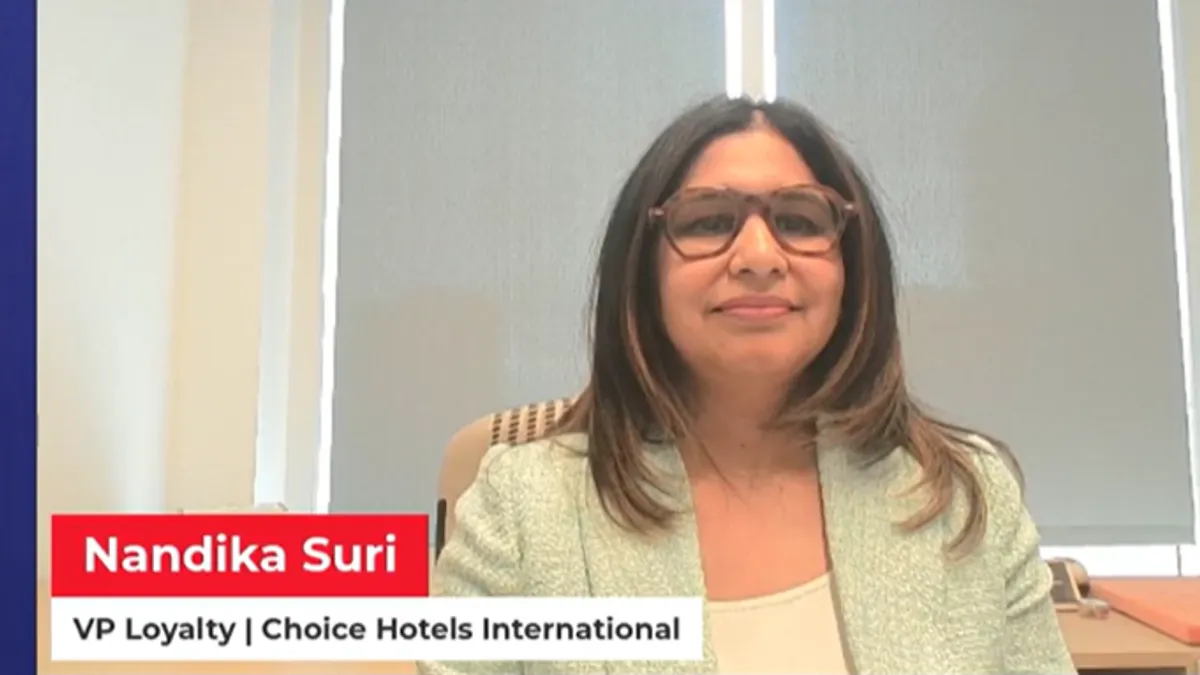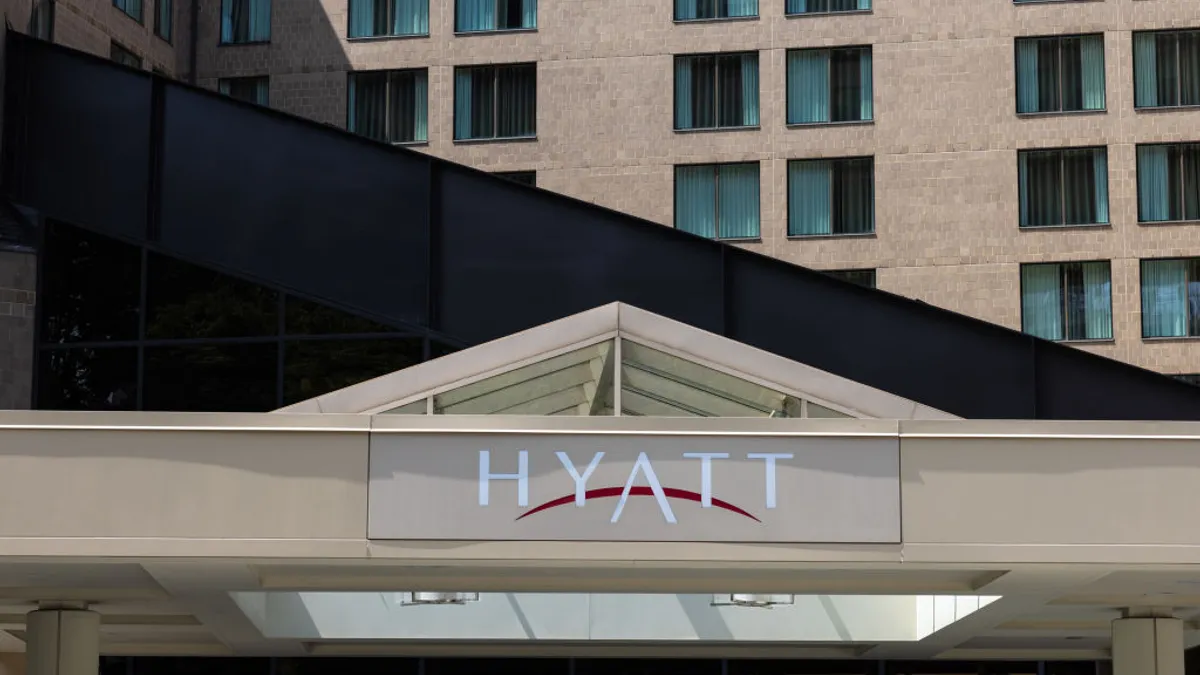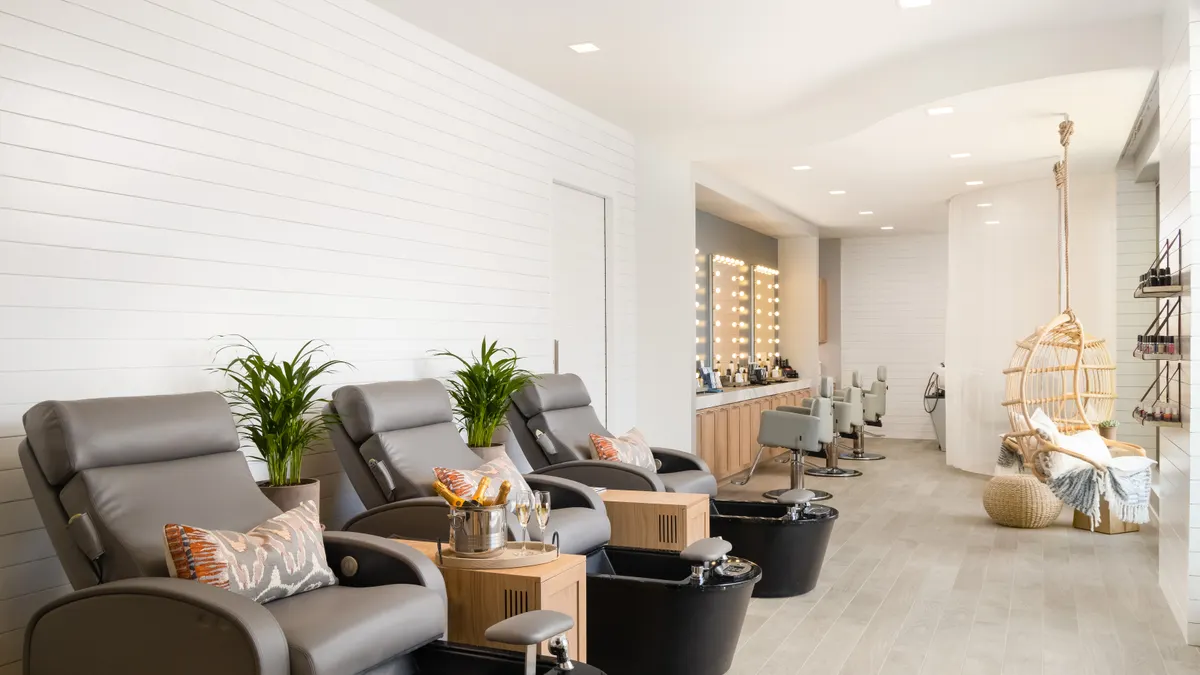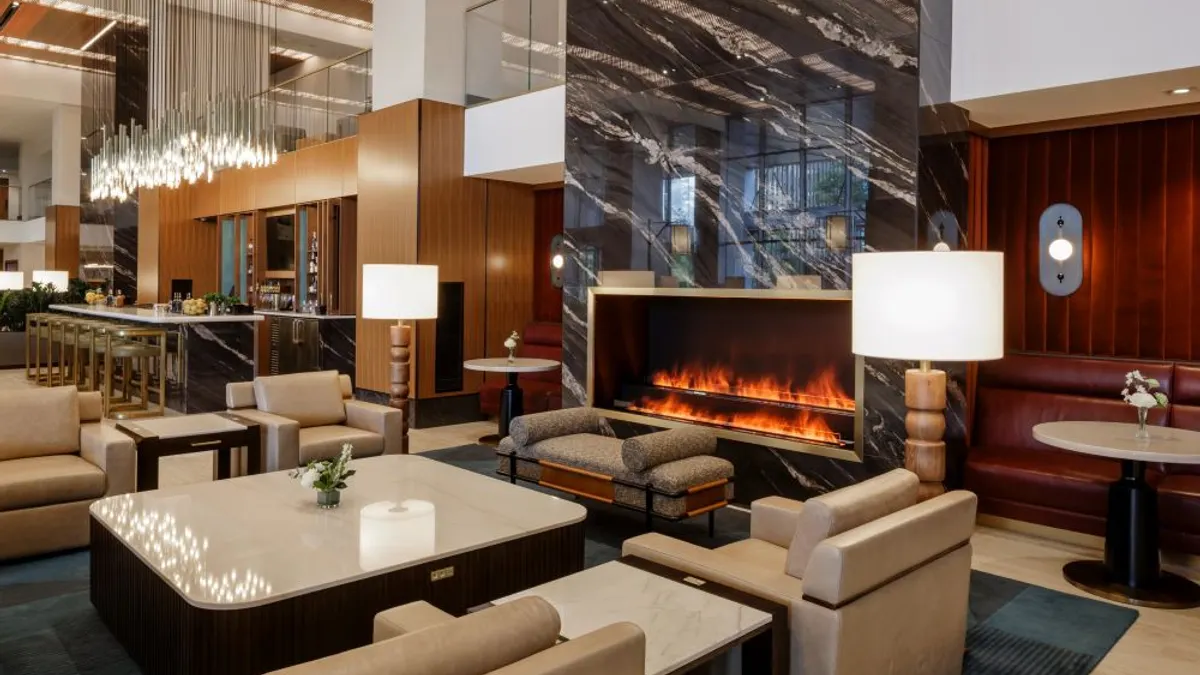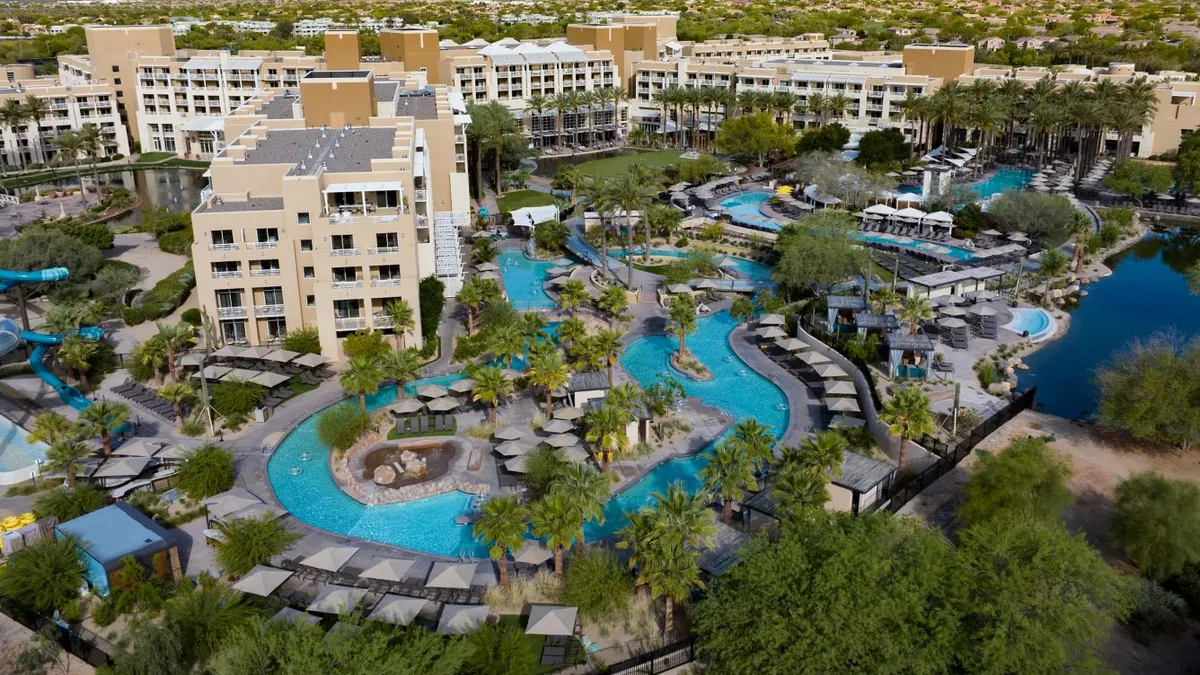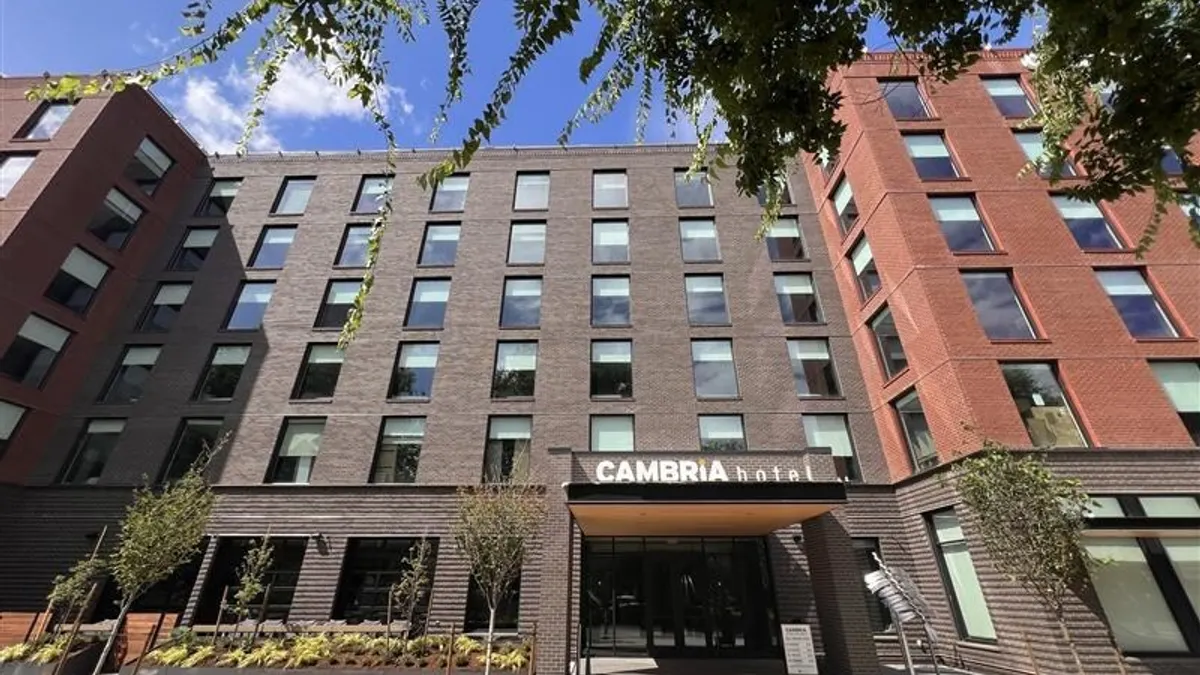This article includes insights from Hotel Dive’s recent live event, “How to scale a hotel loyalty program.” You can watch the full event here.
For years, hotel companies have used loyalty programs to attract and retain guests through unique member benefits and exclusive rewards.
In uncertain economic times, though — when guest preferences are more inclined to shift — loyalty can be a lifeline for hotels. It’s essential that hotels know their guests well to adapt and provide the value they demand.
During a fireside chat hosted by Hotel Dive, Nandika Suri, vice president of loyalty, co-brand credit card and partnerships at Choice Hotels International, shared what today’s hotel guests want most from loyalty programs and how leveraging brand partnerships can enhance a program’s value proposition.
Adapting to shifting guest demand
Amid ongoing economic uncertainty and declined consumer confidence, loyalty programs can “be a very strong driver for retention and engagement for brands” because of the perceived value they provide, Suri said.
“We know that when members engage with the loyalty program, they come back to the brand more often. They spend more. They're actually also spending on property,” Suri said.
Since loyalty programs are a driver of guest retention, it’s important for hotel brands to cater their programs to guest demand. Currently, guests want more experiential rewards, per Suri.
“Loyalty is about creating brand love and deepening that emotional connection, and experiences are often the driver of why consumers are actually traveling,” Suri said.
A 2024 Deloitte study found that even in times of high inflation, consumers prioritize travel, though they are more likely to splurge on experiences now than in years past.
“By providing members experiences that actually resonate with their passion points, we’re deepening that emotional connection with them,” Suri said.
Choice has applied this strategy to its brand offerings as well. Last year, the hotel company repositioned its Park Inn by Radisson brand to fit the needs of “a new generation of experience-centered and value-conscious travelers.”
Leveraging brand partnerships to expand loyalty
Choice Hotels acquired the Park Inn by Radisson brand as part of its acquisition of Radisson Hotels Americas in 2022, which, per Suri, was part of a broader strategy to diversify Choice’s portfolio.
Through its Radisson acquisition and other recent brand partnerships — including one with Westgate Resorts — Choice is “able to provide more attractive offerings to our members” as well as “appeal to a wider base of customers,” which, in turn, drives loyalty, Suri said.
In January, Choice entered a strategic partnership with Westgate Resorts to bring 21 Westgate properties across nine states under its reservation system. Through the deal, the Westgate hotels became bookable with points on the Choice Privileges rewards program.
Hotel companies can also leverage brand partnerships to expand their experiential reward options, per Suri. Choice has previously partnered with sports marketing company Learfield to offer guests access to college football and basketball gameday experiences. Choice also recently teamed with Trackhouse Racing Team on NASCAR events, as sports tourism gains popularity.
Other hotel players that have partnered with big name brands to offer diversified loyalty rewards include Marriott International, which took Marriott Bonvoy members to Taylor Swift’s Eras Tour last year. Wyndham Hotels & Resorts, meanwhile, is collaborating with restaurant chain Applebee’s on food and beverage rewards.
Hotel loyalty membership across five key brand families — Choice, Hilton, Hyatt Hotels, Marriott and Wyndham — surged in 2024, with hotel brand partnerships bolstering the growth, CBRE reported in April.
Trends impacting hotel loyalty
As hotel loyalty strategies continue to evolve and membership grows, hotels will pivot away from transactional loyalty and focus on experiential loyalty, according to Suri.
“Loyalty is becoming less and less about the transaction benefits that you get from the program and more about experiential benefits,” she said. “What has really become important is understanding that end-to-end journey of the customer and figuring out how the loyalty program can be relevant in the context of their overall journey.”
Customers also want more flexibility and choice, Suri said, both in how they own and use their points as well as how they engage with the loyalty program.
A guest could — and often does — have a variety of purposes for traveling, needing different types of accommodations for those different purposes, Suri explained. That’s why it’s important for hotels to “think about customers in those different stages of their journey and make the program more relevant or appealing for them,” she said.
Additionally, consumers have developed “less and less patience for more complex terms, rules and structures,” Suri said, and they want loyalty to be simple.
Guests “want to understand more simply how they can actually access their benefits” — something hotels should bear in mind when they’re designing, managing and running their loyalty programs, according to Suri.



